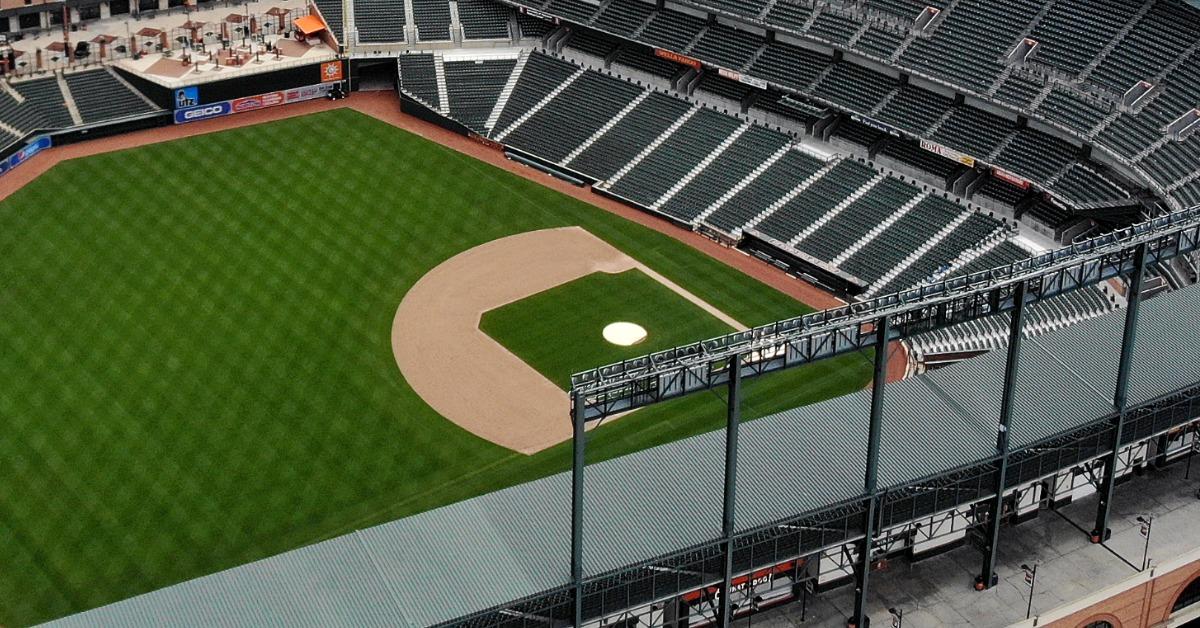Olympic Baseball Has a Few Noticeable Changes From the Game We All Know and Love
Published Aug. 2 2021, 1:02 p.m. ET

Baseball fans worldwide will finally be able to see the sport they know and love take the Olympic stage at this year's Tokyo 2020 Summer Olympic Games. Indeed, for the first time in 13 years, baseball, along with softball, will be included at the Olympics. This addition makes sense when you consider the sheer popularity of baseball in Japan, but not every core element of the game is being retained in the Olympic version of the game.
So, what will be different in Olympic baseball from say, any regular season Major League Baseball game that takes place in the U.S.? Here's a breakdown of the international variant of the sport's rules, including how many innings will be played per game.

How many innings are there in a game of Olympic baseball? The changes are slight but noticeable.
Fans worldwide will be happy to know that the Olympics have decided to not stray from the traditional nine-inning baseball game. If there is a tie at the end of the ninth, the game will go into extra innings, which is another widely accepted rule.
Each team will have nine players representing them in the game, with eight taking up various positions on the field and the ninth, a pitcher, claiming their home on the mound.
For all intents and purposes, the core elements of the game will remain the same in the Olympics, but there are a few slight rule changes that do affect play style and are worth noting. To keep the game moving at a quicker pace than traditional baseball, a 12-second pitch clock will be added. What does this mean exactly? Well, pitchers will only have 12 seconds to throw the ball to the batter or they risk incurring a warning.
After that initial warning, if the clock runs out a second time, the batting team will be given a ball in the count for the current at-bat.
Conversely, if the 12-second pitch clock runs out at the fault of the batter — say, if they take too long to get into batting stance — then that's an automatic strike on the batter. Decisions on such potential outcomes will be made by official Olympic judges on-site while the games are occurring.

The addition of a 12-second pitch timer isn't the only change being made to the game. Beyond that, Olympic officials have decided on a 90-second count between innings intended to speed up the time it takes players to travel from the dugout to their positions on the field. By imposing a timer on this transition, officials can ensure that the game will occur in a much more speedy fashion than traditional MLB games.
The Olympic baseball teams represent six different nations with passions for the sport.
Although it is widely recognized that America is the birthplace and de-facto home of baseball, the game has taken the world by storm and due to such, six different nations have sent teams of their best players to the Olympics this year to compete. These nations — the U.S., Japan, Mexico, South Korea, Israel, and the Dominican Republic — have been split into two groups, and each team will play each other team in their group before advancing to the second round.
The opening round of the tournament is set to have six games in it, but the second round (which will have eliminations) ups the count to 10 games total in order to ensure everyone gets a fair shake at it.
Once those games are completed, the top two teams will face off for the gold medal, while the third and fourth teams will compete for bronze. The fifth and sixth teams to rank, however, will not win anything.